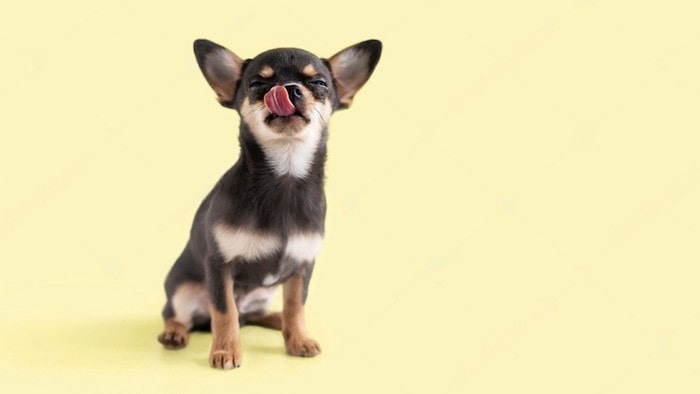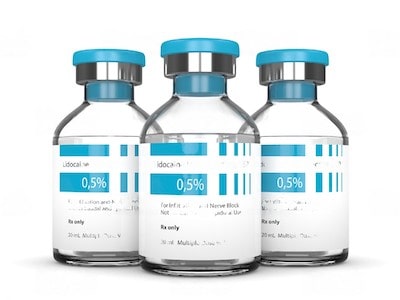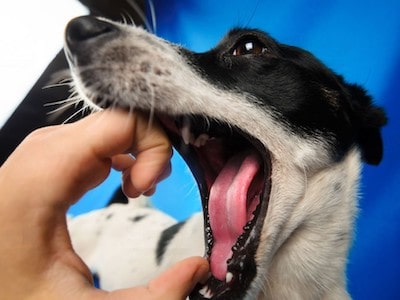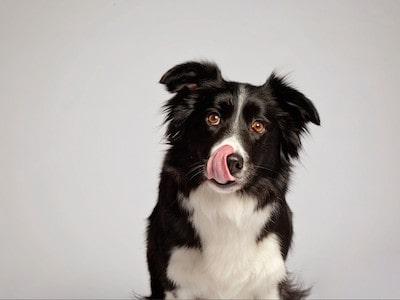As pet owners, we know that our furry friends can be curious creatures, and they often find themselves getting into things they shouldn’t. This is especially true when it comes to medications that we may have lying around the house.

One medication that can be particularly dangerous for dogs to come into contact with is lidocaine. Lidocaine is a common local anesthetic used in both humans and animals, but it can be toxic if ingested by dogs.
In this article, we will discuss what happens if a dog licks lidocaine, the symptoms of lidocaine poisoning in dogs, what to do if your dog comes into contact with lidocaine, and most importantly, how to prevent it from happening in the first place.
What Is Lidocaine?
Lidocaine is a common local anesthetic used to numb or reduce pain in a specific area of the body. It is often used in medical procedures such as dental work, minor surgeries, and dermatology procedures.

Lidocaine works by blocking the nerves that transmit pain signals to the brain, making the area it is applied to numb and reducing the sensation of pain.
It can be used topically, as a cream or gel, or via injection. In veterinary medicine, lidocaine is commonly used to manage pain in dogs, cats, and other animals. While lidocaine can be safe and effective when used properly, it can be harmful if ingested by pets, including dogs.
Symptoms of Lidocaine Poisoning in Dogs
The symptoms of lidocaine poisoning in dogs can vary depending on the amount of lidocaine ingested, the method of ingestion, and the dog’s size and overall health. Some of the symptoms of lidocaine poisoning in dogs include:
- Mild symptoms
- Drooling
- Vomiting
- Diarrhea
- Loss of appetite
- Lethargy
- Disorientation
- Moderate symptoms
- Shaking or tremors
- Difficulty breathing
- Irregular heartbeat
- Muscle twitching
- Seizures
- Weakness
- Severe symptoms
- Collapse
- Coma
- Cardiac arrest
- Death
What to Do If a Dog Licks Lidocaine
If your dog has come into contact with lidocaine, either by licking or ingesting it, it is crucial to take immediate action. Here are the steps you should take:

- Contact your veterinarian: Contact either your veterinarian or a pet poison control hotline immediately, in order to receive advice concerning the most effective course of action based on the amount of lidocaine consumed by your dog, as well as its size and general health.
- Induce vomiting: Before inducing vomiting to prevent lidocaine absorption, always consult your veterinarian, as it may be dangerous or ineffective in certain situations.
- Provide supportive care: Your vet may suggest providing supportive care to control your dog’s symptoms, such as administering IV fluids, oxygen therapy or medications for seizure or arrhythmia management.
- Monitor your dog: Monitor your dog’s behavior and symptoms closely and if any changes or worsening is observed, contact your veterinarian without delay.
How to Prevent Your Dog from Ingesting Lidocaine
Preventing your dog from coming into contact with lidocaine is the best way to avoid the risk of lidocaine poisoning. Here are some tips to help prevent your dog from ingesting lidocaine:

- Keep medications out of reach: Store all medications in a secure location that is out of reach of your dog. This includes prescription medications, over-the-counter medications, and even topical creams or gels that contain lidocaine.
- Store medications properly: Store medications in their original containers and label them clearly. Keep medications in a cool, dry place, and away from direct sunlight.
- Supervise your dog: When your dog is in areas where medications are stored, such as the bathroom or kitchen, supervise them closely to ensure they do not come into contact with any medications.
- Dispose of medications properly: When disposing of medications, do so in a way that ensures your dog cannot access them. This may include flushing them down the toilet or placing them in a secure trash can that your dog cannot access.
FAQs
If you suspect that your dog has ingested lidocaine, contact your veterinarian or a pet poison control hotline immediately. They will advise you on the best course of action based on the amount of lidocaine ingested and your dog’s size and overall health.
The amount of lidocaine that is toxic to dogs can vary depending on the size of the dog, the method of ingestion, and other factors. Even small amounts of lidocaine can be toxic to dogs, so it is important to seek veterinary care immediately if you suspect your dog has ingested lidocaine.
Yes, lidocaine can be used to manage pain in dogs. However, it should only be administered by a veterinarian and in the appropriate dosage. It is important to follow your veterinarian’s instructions carefully and monitor your dog for any signs of adverse reactions.
Yes, there are many substances that can be toxic to dogs, including chocolate, grapes and raisins, certain plants, and household chemicals. It is important to keep all potentially toxic substances out of reach of your dog and to seek veterinary care immediately if you suspect your dog has ingested a toxic substance.
Conclusion
In conclusion, lidocaine is a common local anesthetic used to manage pain in both humans and animals. While it can be safe and effective when used properly, it can be toxic to dogs if ingested. If your dog comes into contact with lidocaine, it is important to seek veterinary care immediately and take steps to prevent future accidental ingestion.
By keeping all medications out of reach, storing medications properly, supervising your dog, and disposing of medications properly, you can help keep your furry friend safe and healthy.
Remember, if you suspect your dog has ingested lidocaine or any other potentially toxic substance, don’t wait – contact your veterinarian or a pet poison control hotline immediately.

Ellis is a retired veterinary technician and full-time contributor at DogLovesBest. He likes writing about pet health care tips and reviews the products that are useful for fidos on a daily basis.
Ellis also guardians a Siberian husky, Nova, and a cat named Shilly. They all live happily with his wife Ammy, and both the dogs on a seaside apartment in Queens, NY.
